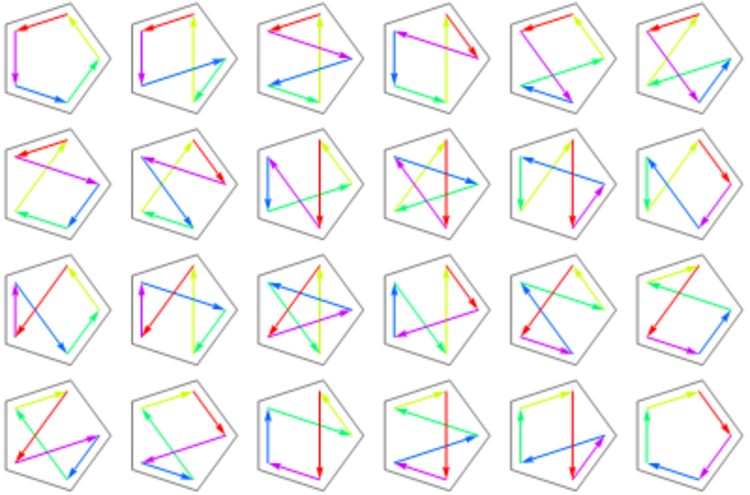Starling Sum
 Let
A
(
n
,
k
)
=
∑
S
∈
[
n
]
k
Π
(
S
)
1
.
Let
A
(
n
,
k
)
=
∑
S
∈
[
n
]
k
Π
(
S
)
1
.
Then A ( 2 0 0 , 1 9 7 ) can be expressed as x × 1 0 − 3 6 3 . Find x up to 3 decimal places.
Details and Notations
i. [ n ] means the set { 1 , 2 , . . . , n } .
ii. [ n ] k means the set of all subsets of [ n ] that have k elements.
iii. ∈ means belongs to, i.e, S ∈ [ n ] k means S is a subset of [ n ] with k elements.
iv. Π ( S ) denotes the product of the elements of S .
v. The sum is over all k -element subsets S of [ n ] .
vi. By convection Π ( ϕ ) = 1 where ϕ denotes the empty set.
vii. One must know about Stirling Numbers in order to solve it.
Example
A ( n , 1 ) = ∑ S ∈ [ n ] 1 Π ( S ) 1 = 1 + 2 1 + ⋯ + n 1
A ( n , 2 ) = ∑ S ∈ [ n ] 2 Π ( S ) 1 = 1 + 1 × 2 1 + 2 × 3 1 + 2 × 4 1 + ⋯
Try other interesting combinatorics in my set Hard
The answer is 1.682.
This section requires Javascript.
You are seeing this because something didn't load right. We suggest you, (a) try
refreshing the page, (b) enabling javascript if it is disabled on your browser and,
finally, (c)
loading the
non-javascript version of this page
. We're sorry about the hassle.
1 solution
Nice writeup, I used the same generating function in expanded form, but I could reduce it further to 1 9 8 ! 2 0 1 [ z n ] lo g ( 1 − z 1 ) 1 9 8
Log in to reply
yes,you are right.
Basically, a generating function for s ( n , k ) is-
∑ n = k ∞ ( − 1 ) n − k n ! z n s ( n , k ) = k ! l o g k ( 1 + z )
Let A ( n , k ) = ∑ S ∈ [ n ] k π ( S ) 1
The required generating function is G n ( x ) = ( 1 + 1 x ) . . . ( 1 + n x ) since a typical term of the product is a 1 . . a k x k where ( a 1 , . . a k ) ∈ [ n ] .
Now, G n ( x ) = n ! 1 ( x + 1 ) ( x + 2 ) . . . ( x + n )
Again, H n ( x ) = x ( x + 1 ) . . ( x + n − 1 ) = ∑ k = 1 n s ( n , k ) x k where s ( n . k ) is the Stirling number of first kind.
Hence, x G n ( x ) = n ! 1 H n + 1 ( x )
Now, A ( n , k ) = c o − e f f i c i e n t o f x k i n G n ( x )
= c o − e f f i c i e n t o f x k + 1 i n n ! 1 H n + 1 ( x ) = n ! 1 s ( n + 1 , k + 1 )
Hence, A = 2 0 0 ! 1 s ( 2 0 1 , 1 9 8 ) = 1 . 6 8 2 0 5 6 1 . . . × 1 0 − 3 6 3 .
In computing the above expression I used the identity s ( n , n − 3 ) = ( 2 n ) ( 4 n )